TypeError: object of type 'NoneType' has no len() in Python
Last updated: Apr 8, 2024
Reading time·4 min

# TypeError: object of type 'NoneType' has no len() in Python
The Python "TypeError: object of type 'NoneType' has no len()" occurs when we
pass a None value to the len() function.
To solve the error, figure out where the variable got assigned a None value
and correct the assignment.

Here is an example of how the error occurs.
my_list = None # ⛔️ TypeError: object of type 'NoneType' has no len() print(len(my_list))
We tried getting the length of a None value which causes the error.
# Check if the variable doesn't store None before using len()
Use an if statement if you need to
check if a variable doesn't store a None value
before getting its length.
my_list = None if my_list is not None: print(len(my_list)) else: # 👇️ this runs print('Variable stores a None value')
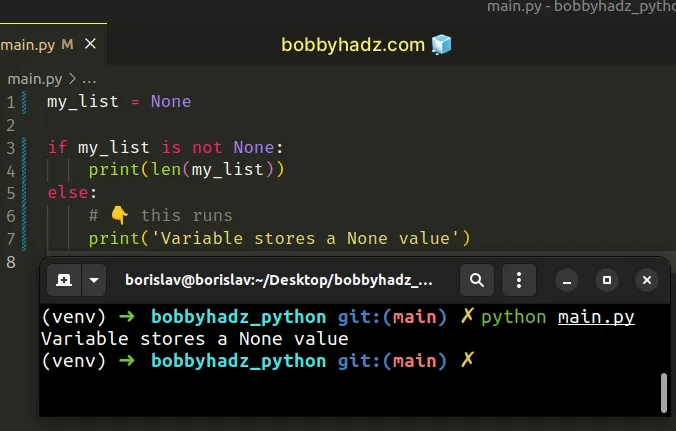
Alternatively, you can provide an empty list or an empty string as a fallback.
my_list = None if my_list is None: my_list = [] print(len(my_list)) # 👉️ 0
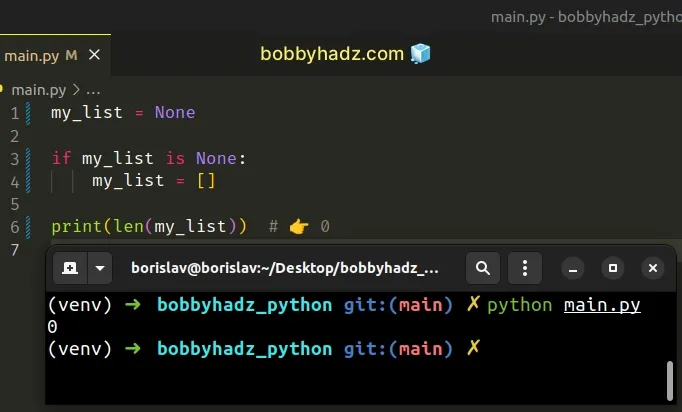
If the variable stores a None value, it gets set to an empty list.
You can also add an else statement.
my_list = None if my_list is None: my_list = [] else: print('The variable is not None', len(my_list)) print(len(my_list)) # 👉️ 0
If the variable stores a None value, it gets set to an empty list in the if
block.
Otherwise, the else block runs and the variable isn't None.
# The most common sources of None values
The most common sources of None values are:
- Having a function that doesn't return anything (returns
Noneimplicitly). - Explicitly setting a variable to
None. - Assigning a variable to the result of calling a built-in function (e.g.
sort()) that doesn't return anything. - Having a function that only returns a value if a certain condition is met.
# Functions that don't return a value return None
Functions that don't explicitly return a value return None.
# 👇️ This function returns None def get_list(): print(['a', 'b', 'c']) # 👇️ None my_list = get_list() # ⛔️ TypeError: object of type 'NoneType' has no len() print(len(my_list))
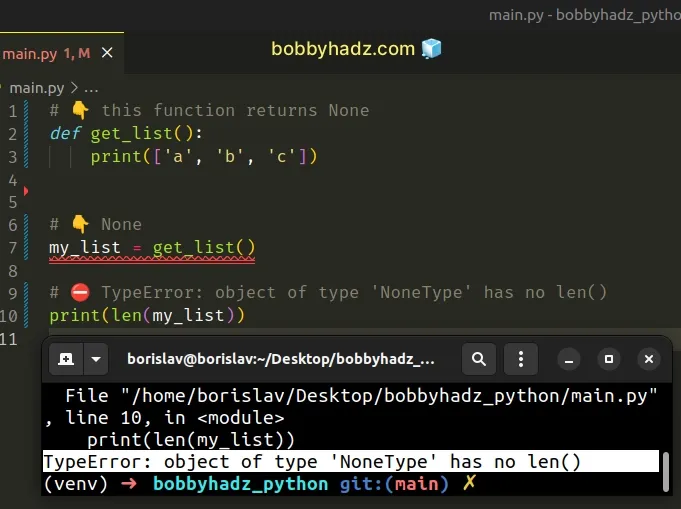
You can use the return statement to return a value from a function.
def get_list(): return ['a', 'b', 'c'] # 👇️ None my_list = get_list() print(len(my_list)) # 👉️ 3
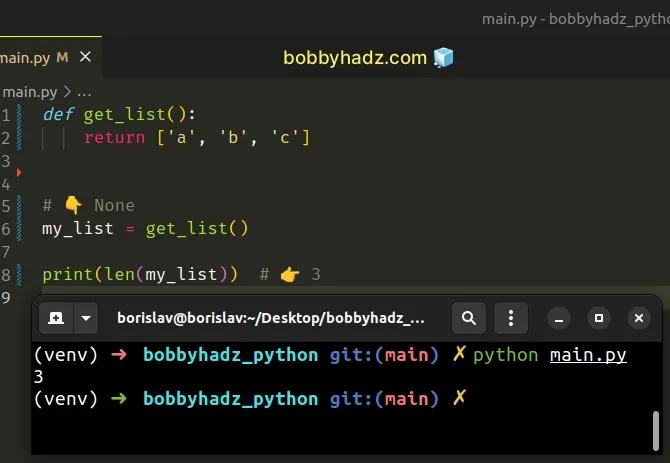
We used a return statement to return a list from the function and passed the
list to the len() function.
# Many built-in methods return None in Python
Note that there are many built-in functions (e.g. sort()) that mutate the
original object in place and return None.
my_list = ['c', 'b', 'a'] # 👇️ None result = my_list.sort() print(result) # 👉️ None print(my_list) # 👉️ ['a', 'b', 'c']
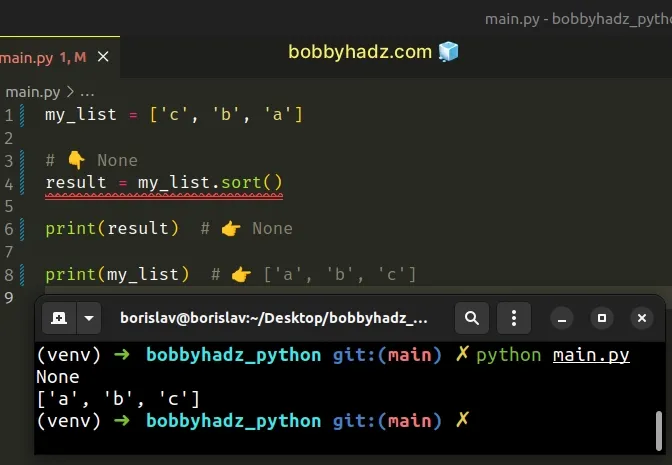
There is a convention in Python for built-in methods that mutate an object in place to return None.
Methods like list.append(), list.extend(), list.sort() mutate the list in
place and return None.
Make sure you aren't storing the result of calling one such function in a variable.
# Having a function that returns a value only if a condition is met
Another common cause of the error is having a function that returns a value only if a condition is met.
def get_list(a): if len(a) > 3: return a # 👇️ None my_list = get_list(['a', 'b']) # ⛔️ TypeError: object of type 'NoneType' has no len() print(len(my_list))
The if statement in the get_list function is only run if the passed-in
argument has a length greater than 3.
None.To solve the error in this scenario, you either have to check if the function
didn't return None, or return a default value if the condition is not met.
def get_list(a): if len(a) > 3: return a return [] # 👈️ Return an empty list if the condition is not met my_list = get_list(['a', 'b']) print(my_list) # 👉️ [] print(len(my_list)) # 👉️ 0
Now the function is guaranteed to return a value regardless of whether the condition is met.
The len() function returns the length (the number of items) of an object.
When we pass an object to the len() function, Python calls the __len__()
method of the object under the hood.
Since None values don't have a __len__ attribute, the error is caused.
To solve the error, track down where the variable got assigned a None value
and correct the assignment.
# Additional Resources
You can learn more about the related topics by checking out the following tutorials:

